
13 minute read
Payments
from SBC Leaders Issue 13
by SBC Global
IN-BANNER PAY N PLAY WILL ALLOW PLAYERS TO DEPOSIT, REGISTER AND VERIFY, AND PLACE A WAGER ALL IN ONE GO FROM THE DYNAMIC ODDS BANNERS ON AFFILIATE WEBSITES
We’re helping operators automate compliance and offer instant payouts
Over the nearly 13 years that Trustly has been in business, we have built an extensive network of bank integrations across Europe and the US, allowing us to offer the fastest rails to process payments in multiple markets.
Our coverage and integration with some of the biggest banking networks in many markets is second to none. This brings additional value to our clients by allowing them to utilise our
instant payout product – which is in greater demand than ever by both players and operators.
Similarly, we’re able to help operators manage multi-market compliance. In parallel with launching Pay N Play across multiple markets, we’ve developed stand-alone solutions that help operators automate compliance.
Leading operators are using our Lean KYC, Name Verify, and Age Verify products, which allow the optimisation and automation of verification processes and support operators in meeting regulatory requirements across multiple markets.
We are continuously following the changes in local regulations and aim to develop new product features and functionalities to help our clients with payment process optimisation, and with improving their compliance processes.
Pay N Play will be available in more European markets
Today, Pay N Play is live with nearly 200 brands across Europe. Once operators began offering Pay N Play a few years ago, they soon saw that the unbeatable customer experience rapidly increased player conversion and loyalty.
Given the success of Pay N Play in our currently live markets, as well as the improvements in user experience that PSD2 and Open Banking are bringing to other markets across Europe, which will inevitably make bank payments more widely adopted in those markets, we are actively exploring the possibility to introduce new Pay N Play markets in 2021.
ONCE OPERATORS BEGAN OFFERING PAY N PLAY, THEY SOON SAW THAT THE UNBEATABLE CUSTOMER EXPERIENCE, RAPIDLY INCREASED PLAYER CONVERSION AND LOYALTY

Broadening our horizons
As you know, Trustly is currently present in multiple markets across Europe, as well as in the US. Moreover, we recently launched our verification product in Australia and Canada and we are exploring the possibility to continue our expansion outside of Europe. I hope that we will be able to share some exciting news this year about our global expansion.
Scan N Play will drive cashless retail and casino gaming
Our Scan N Play solution is making it possible for land-based operators to offer their players a leading-edge cashless experience. There are no speed bumps on the path to user adoption because there’s no download or account sign-up required.
The player just needs their mobile phone, a connection to the internet and access to their bank account. To make a deposit, the player scans a QR code which is displayed at cashier points, the cage, gaming terminals or at table games.
There’s more to come
Trustly has been at the forefront of Online Banking Payments for nearly 13 years now. As regulatory changes drive consumer adoption, we’re ready to support operators who want to meet that market demand. Based on our proven track record, it is clear that Trustly offers the expertise, size and stability to support operators as they strive to improve efficiency and player experience.
In 2021, we will continue to focus on innovation that delivers even more value to our customers. Stay tuned! •
HOW EUROPEAN LOTTERIES RESPONDED TO THE COVID-19 PANDEMIC IN 2020
THE SUPPORT SHOWN by the likes of the UK National Lottery, OPAP and German lotteries has been vital for communities in the fight against COVID-19
The year 2020 has hit everyone hard in one way or another thanks to the COVID-19 pandemic. A lot of people have been struggling as a result in the past 12 months, but lotteries across Europe and further afield have been doing their best to try and help people cope during this difficult and unprecedented time.
Since the beginning of the first lockdowns in March 2020, lotteries across the continent have played a major part in supporting their local communities, upholding the value many lotteries have of helping and being a benefit to society, especially during times of need.
Whether that be offering relief, funding medical equipment, or creating emergency funds and welfare aid, national lotteries have assisted those that needed it most, demonstrating they can be a force for good.
The support by lotteries has helped keep communities going through the challenging times of the pandemic, and it is this work that will continue long into the new year where there will be a fresh set of challenges as we enter a post-COVID world.
It is therefore important to highlight some of the fantastic efforts that have been done by lotteries to help out their communities in their respective countries over the past year during the pandemic. Here are just a few examples of the brilliant work that has been done.
LOTTERIES ACROSS THE CONTINENT HAVE PLAYED A MAJOR PART IN SUPPORTING THEIR LOCAL COMMUNITIES THE UK’S NATIONAL LOTTERY ANNOUNCED A £600M SUPPORT PACKAGE FOR CHARITIES AND ORGANISATIONS IMPACTED BY THE PANDEMIC
UK National Lottery
Back in April, the UK’s National Lottery announced a £600m support package for the charities and organisations which were impacted by the pandemic. This funding was used for initiatives that focused on combatting loneliness and isolation, providing care for the elderly and offering support for physical and mental health.
It also provided support for organisations and projects across the arts, community and charity, heritage, education, environment and sporting sectors - many of which were exempt from government support.
‘Innovations in Dementia’, a National Lottery funded programme, worked with people living with dementia to design a guide for volunteers who are supporting those with the disease throughout the UK lockdown.
The National Lottery Heritage Fund created a £50m emergency fund to help British heritage sites after almost 50% said they would not survive beyond six months if
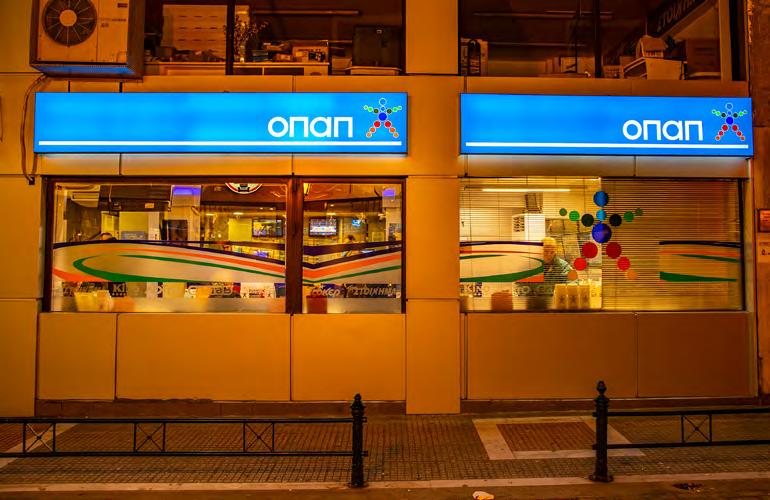
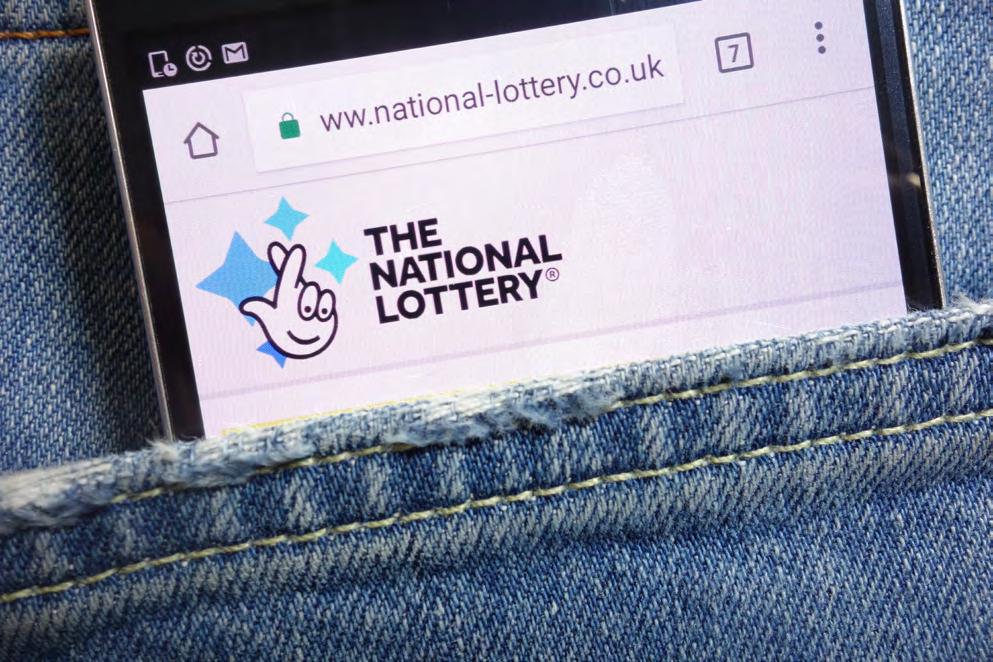
the virus shutdown continued, while Arts Council England announced a £160m emergency support package to support the cultural sector.
Sport England, funded by the UK Government and the lottery, also made up to £195m of funding available to help the sports sector throughout the pandemic.
The lottery has been following a funding plan in response to COVID-19, offering grant holders an element of flexibility so that they can focus on supporting their local communities as well as making all funding decisions (up to £300m of lottery funding) devoted to addressing the current crisis and accelerating the cash part of the funding as much as possible.
Moreover, the National Lottery Community Fund recently announced that it has distributed more than £650m to communities across the UK throughout 2020 (January 1 to November 25), largely due to National Lottery player spend.
Greece’s OPAP
Throughout the pandemic, OPAP has actively supported Greece’s public health system and has helped develop new initiatives. This has included support for the renovation of paediatric hospitals, the modernisation of the Ophthalmology and ENT Nursing Unit of the Panagiotis and Aglaia Kyriakou hospital as well as the Cardiology Unit of Aghia Sophia hospital.
The lottery also donated 500,000 masks for the healthcare personnel in three referral public hospitals, on top of donating hemodynamic monitors to the Panagiotis & Aglaia Kyriacou hospital for the monitoring of vital body parts. In addition, the lottery also supplied as one vital parameters monitor for use in intensive care units, surgeries and hospital wards among other facilities.
During the first lockdown and in the context of the health prevention ‘OPAP in the Neighborhood’ programme, OPAP - in collaboration with The Smile of the Child (a non-governmental organisation) - offered the use of its programmes to the health system.
When coronavirus cases increased during the pandemic’s second wave, the lottery also gave urgent medical equipment to the Ippokrateio - Hospital of Thessaloniki, which included a mobile radiological unit, three mobile ventilators, two defibrillators, a mobile ultrasound machine and eight hi-flow nasal cannulas for intubation.
OPAP donated hygiene material to cover the needs of the Municipality of Thessaloniki and Thessaloniki Police Force, a city that has been significantly affected during the pandemic.
In the business world, OPAP offered its support to the small and medium companies that participate in the ‘OPAP Forward’ programme to address COVID-related challenges. It also recruited companies that have helped the public health system through their actions.
Developing the ‘Sport Academies Online’ platform, the Greek lottery opened channels of communication for parents and children to speak with
OPAP HAS HELPED GREECE’S PUBLIC HEALTH SYSTEM BY SUPPORTING THE RENOVATION OF PAEDIATRIC HOSPITALS
LOTTO BAYERN PROVIDED AN AID PACKAGE OF €3.5M FOR OPERATORS THAT RAN INTO DIFFICULTIES DUE TO THE PANDEMIC
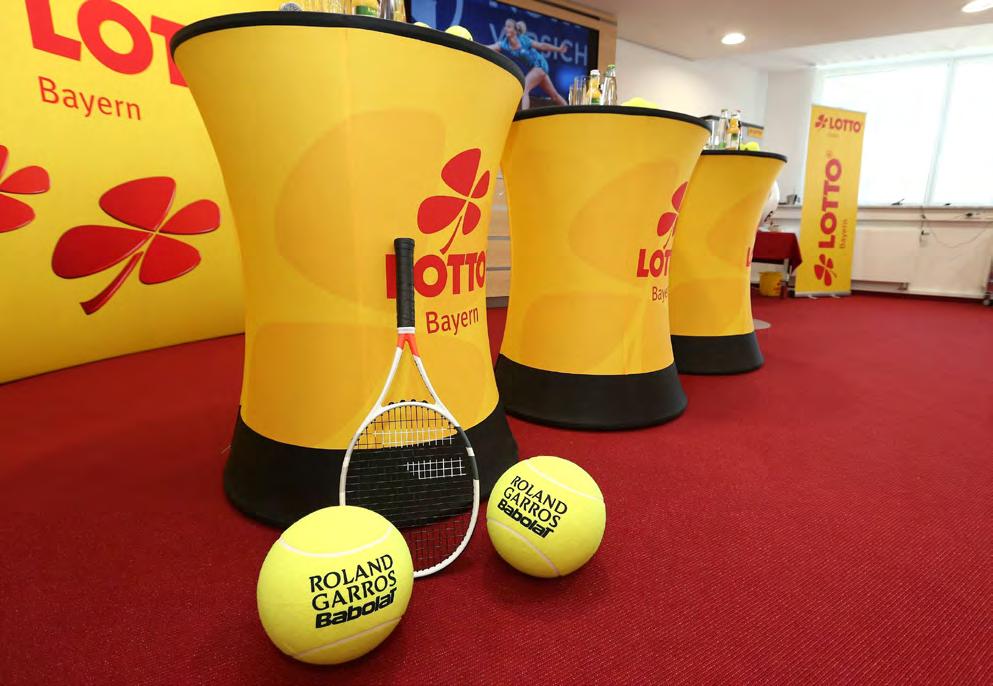
a team of psychologists, nutritionists, paediatricians, coaches and trainers.
German Lotteries
Shining a light on Germany’s various lotteries, Lotto Bayern provided an aid package of €3.5m for its operators which had run into difficulties due to the pandemic. This funding has been used to help them better withstand the difficult economic conditions.
Lotto Brandenburg supported ‘Hilfe für Familien in Not’ (Help for families in need) - a foundation, which the lottery has sponsored for many years, that specialises in financial support to families in need and expectant mothers with a donation of €5,000.
Aid was delivered to 17 non-profit associations affected by COVID-19 by Lotto-Toto GMBH Sachsen-Anhalt, with more than 160 companies applying for help within a month of the €1m fund being available.
Westdeutsche Lotterie gave 40% of all wins to sports clubs and gyms in North Rhine-Westphalia which organised online exercise classes during the pandemic. It also backed the North Rhine-Westphalia Red Cross in its campaign to promote the use of protective masks.
Moving away from sport, the lottery also supported artists by asking professional cultural workers based in North Rhine-Westphalia to produce an exclusive clip for a fee, which will be made available to the public via their social media platforms.
The majority of the featured clips included a reference to the pandemic, either in the selection or in the implementation of the theme. It aimed to support the artists as well as contribute to the preservation of the vibrant art and cultural landscape in the state.
Analysis
Many more lotteries across Europe, and around the world, have done extraordinary work to support their communities during the pandemic. Yet, just from the three countries listed, it is clear to see that lotteries are providing vital support for many communities as they fight against COVID, and they will continue to do so as we enter 2021.
The variety of support being provided is remarkable as well. From medical aid to health facility renovations, exercise classes and appreciation of heritage, culture and the environment, lotteries in 2020 made sure no one was left behind in what has been a very challenging year.
With the unknown challenges to come in a post-COVID world, many countries, and lotteries alike, will be keeping their fingers crossed
that vaccines will help control - and eventually stop - the spread of COVID, allowing communities to return to some form of normality.
However, even if a vaccine is successful at controlling COVID, the support of lotteries will still be needed by communities way beyond the day the pandemic is declared over by medical authorities, to help them get back onto their feet. •
JARI VÄHÄNEN: MAKING SENSE OF FINLAND'S NEW GAMBLING LEGISLATION
JARI VÄHÄNEN, PARTNER AT THE FINNISH GAMBLING CONSULTANTS OY, dissects the proposed gambling legislation in Finland as he tries to comprehend what he describes as nonsensical measures
In early January, the Ministry of the Interior Affairs published its proposal for Finland's new gambling legislation. The preparatory work, which was carried out by officials, took almost a year to complete. Personally, I think they did a great job as Covid-19 certainly made the process significantly more complicated. Nevertheless, the work was done on time.
The outcome of the work was also excellent, given the mammoth task. Officials are not responsible for the fact that the political mandate of the work was anything but sensible.
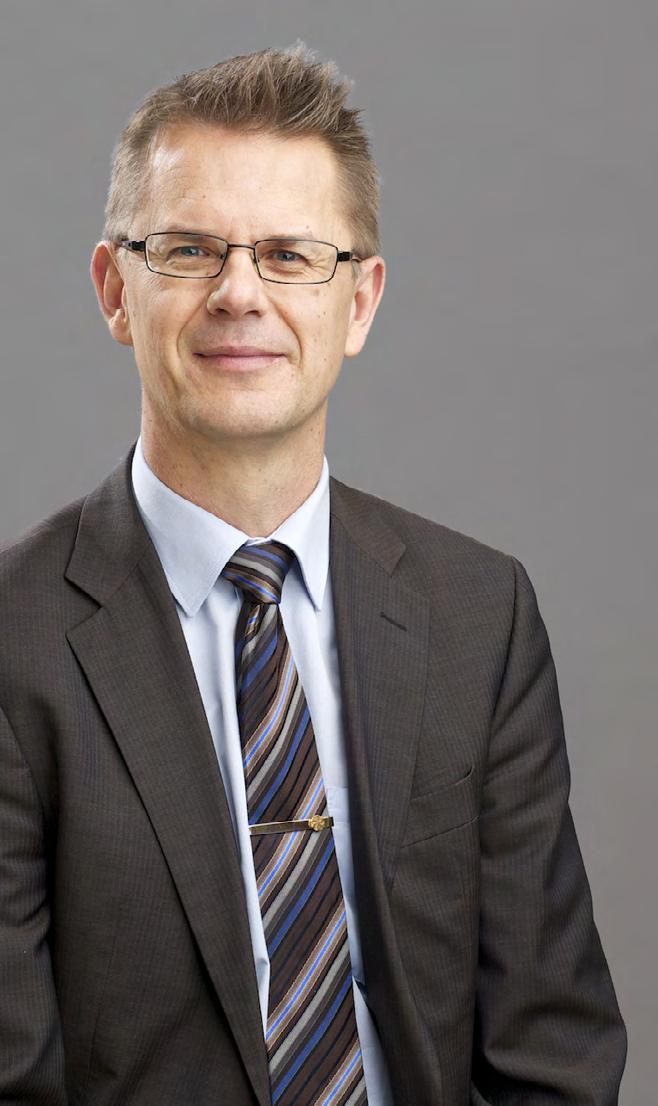
The aim of Finland's current Government Programme is to secure Veikkaus' monopoly and operating conditions. In addition to this, it seeks to combat gambling problems and to channel gambling to Veikkaus' responsible and controlled offering. It also states that other gambling companies' marketing will be addressed, and ways will be sought to restrict gambling to other gambling operators' sites.
Based on the gambling policy guidelines set out in the Government Programme, the Ministry of the Interior Affairs set up a working group in early 2020 to prepare the groundwork for Finland's new gambling legislation. The starting point for the legal reform was that the Finnish gambling system
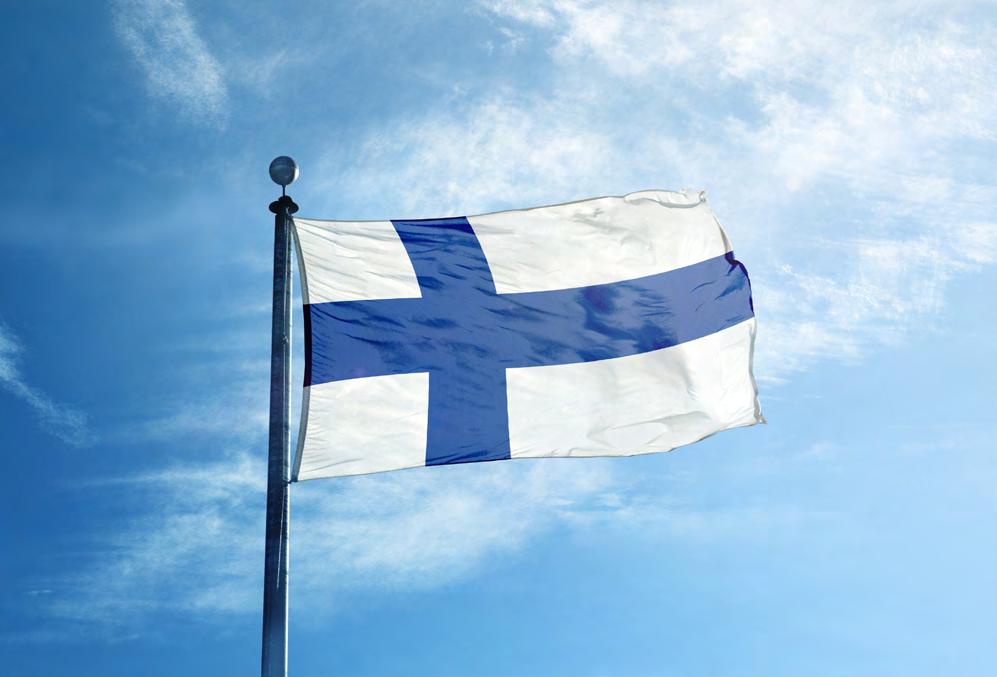
would continue to be based on a monopoly system.
As a result, the working group did not have the opportunity to carry out such proper preparatory work to find the best possible solution as a basis for the Finnish gambling system. The mandate stated unequivocally that the preparation should be based on a monopoly model. Therefore, wellfunctioning licence-based models in other countries were not even studied.
On many occasions, I have stated that I am - in principle - opposed to monopolies. On the other hand, during my Veikkaus years, I understood that there are business areas where competition should be limited. Gambling is definitely an activity that states must regulate because of potential gambling problems. However, this does not mean that a monopoly is automatically the best solution.
It is lousy preparation if not all possible alternative business models are analysed. On what grounds can the Finnish Government claim that, in preparing the matter, it has promoted the interests of its citizens in the best possible way by prohibiting the examination of possible better alternatives?
As a whole, the proposal for new gambling legislation is a huge disappointment. Maybe I expected too much when I hoped to see things change. Now I feel that just a few changes are promised, and they are taking some things in the wrong direction.
Hopefully there is progression when it comes to mitigating the effects of problem gamblers. The rates of gambling addiction in Finland has changed incomprehensibly little during the 21st century, especially when compared to the fact that gambling has increased significantly.
The proportion of Finns suffering from gambling problems has been at the level of about 3 percent from year to year. Instead, the number of people suffering from serious gambling problems has increased somewhat, and I hope that the new legislation will help this unfortunate development.
The core issue with the Finnish gambling policy is the discrepancy between business profit expectations and the responsibility requirements set at the same time. The Finnish state has not been able to decide which issue it considers to be more important. Therefore Veikkaus, the monopoly operator, has had challenges in understanding what the owner wants from it.
Revenue expectations have been high, but at the same time,

